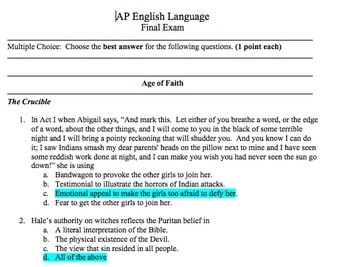
AP English Language and Composition Past Papers
If you’re struggling with the AP English language and composition exam, you’re not alone. The vast majority of students have no idea what to expect on this test. This article will walk you through the exam structure, Grammar, and Practice tests. You’ll find the answers to these questions and more to help you pass this tough course. Here’s what you can do to get the highest score possible on this test:
Scores on AP English Language and Composition past papers
Despite the fact that the exam isn’t given until May, scores on AP English language and composition past papers are still an important tool for students who are planning to take it in the near future. The AP Exam is typically more difficult than the regular high school English classes, and requires more independent work from students. A score of three or higher is considered a passing score. Colleges set their own rules for granting AP credit, so it’s a good idea to check with your registrar’s office. You can also check the College Board’s website for details on AP credit policies.
AP(r) English language and composition exams are graded on a scale of one to five, with higher scores being better. The higher your score is, the more college credit you’ll earn, and the better your chances are of getting into a good college or getting out of a required course. The average score is 2.82. If you’re unsure of what to expect on the AP exam, you can use the score calculator to get an idea of where you’re headed.
Exam structure
Studying AP English language and composition past papers can give you an idea of how the test is structured. The test is composed of three sections, with 15 minutes for reading and two hours for writing. AP students should aim to read all the questions and supplementary texts in 15 minutes, so they can prepare well for the exam. To do well on the exam, you should study AP English language and composition past papers to get an idea of how to approach the test.
Taking practice tests can help you get a feel for the style of the test. For example, Albert features a large number of mini-quizzes about rhetoric. These questions, however, do not closely match the tone of actual AP Lang questions. However, Albert is one of the few resources with practice composition questions. You need to create an account with Albert to access the practice questions. Some questions are free, while others require a subscription.
Practice tests
AP English Language and Composition Practice Tests help you test your knowledge of the course material. These tests are fully-scored, and they include detailed explanations for every question. You can use them to tailor your study sessions to improve your scores. These tests also help you get a feel for what the exam will be like. These tests are a great way to ensure that you are prepared for the test. They also allow you to analyze your weaknesses and strengths.
To prepare for the AP English language and composition exam, you need to take a diagnostic test. You can find diagnostic tests online from College Board or Princeton Review, or take a paper-and-pencil test from Barron’s or Princeton Review. Make sure to record your score on the diagnostic test, and create a study plan based on your results. There are many AP English language and composition practice tests available online, so you should find one that suits your needs.
Grammar
The AP English language and composition test is very difficult. It is designed to give students a 90-95% score. Because of this, the distribution of scores is skewed. This makes it easy to tell the top students from the bottom, but not so easy to distinguish the worst. The AP Lang test is like dodging falling bricks. The more you study the past papers, the more confident you will be in answering the test questions.
The AP English language and composition exam is composed of multiple-choice questions, two reading passages, and three writing passages. The Reading Passages are nonfiction passages that require you to analyze rhetorical devices and figure of speech. The Writing Passages are meant to assess whether students have learned how to use rhetorical terms in a particular passage or article. In addition, the AP English language exam has three essay prompts that require you to analyze rhetorical devices and determine the intended purpose of the writer.
Punctuation
AP English language and composition past papers may be your best bet when you’re studying for the test. They’ll give you a better idea of what to expect from the exam. For example, you’ll learn about AP’s emphasis on rhetoric, which includes tone, voice, and diction. AP essays also test you on how well you use language to express an opinion. Punctuation is an important part of rhetoric, and you should avoid using words like “really” or “really.”
When studying for the AP English language and composition test, it is important to know the vocabulary used on the exam. You’ll have to memorize terms and phrases used in writing prompts and test questions. You should also brush up on vocabulary related to literary and rhetorical devices. This way, you’ll know exactly what to do when the exam comes around. Remember to practice punctuation rules to make sure you know how to answer difficult questions.


Comments (0)